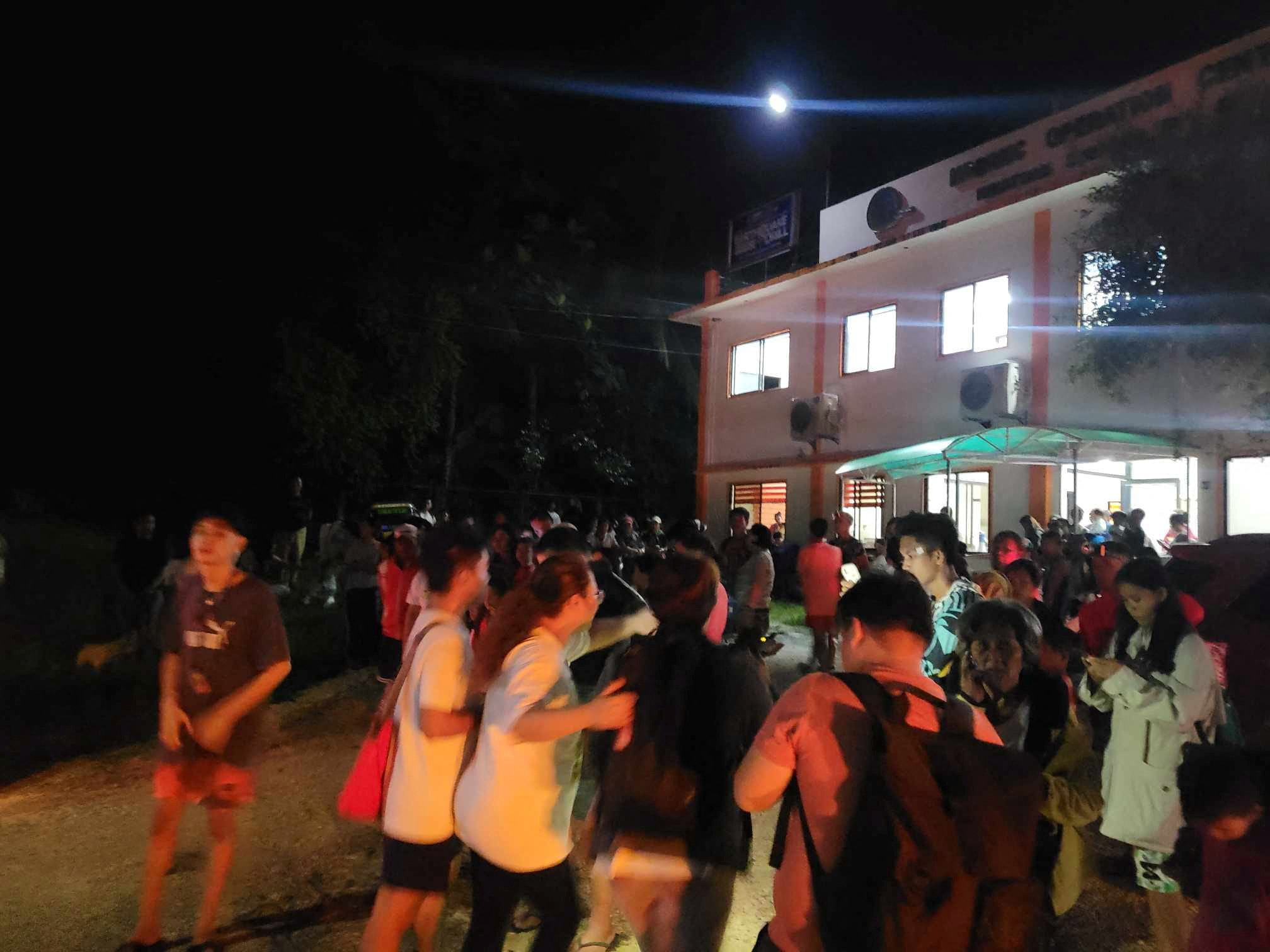By Mikhail Flores December 3, 2023 3:39 AM GMT+7
Summary
- U.S. Tsunami Warning System says threat of tsunami has passed
- Evacuations continue as Philippines maintains tsunami alert
- No initial reports of significant damage
- Over two dozen aftershocks in southern Philippines
MANILA, Dec 2 (Reuters) - Evacuations were under way in the Philippines after a quake of at least magnitude 7.5 struck the southern region of Mindanao on Saturday night, triggering tsunami warnings in the country and in Japan, though a U.S. agency said the risk of large waves had passed.
The U.S. Tsunami Warning System, which initially warned of waves of up to 3 metres (10 feet) above the usual high tide level, later said there was no longer a tsunami threat.
Evacuations were continuing in the Philippines, where there were no initial reports of significant wave damage or casualties despite continuing aftershocks.
The Philippine Institute of Volcanology and Seismology, Phivolcs, maintained that the risk of a tsunami remained.
Waves of 40 cm (1.3 feet) were observed on Japan's Hachijojima island, some 290 km (180 miles) south of Tokyo, according to the Japan Meteorological Agency, which had initially said they could reach a metre (3 feet) in height.
In the Philippines, Phivolcs urged people living near the coast of Surigao Del Sur and Davao Oriental provinces to evacuate or move farther inland.
It also revised earlier guidance to say it was expecting some damage from the tremor.
However, the two provinces are largely rural and not densely populated, unlike other parts of the Philippines.
The area was quickly hit by more than two dozen aftershocks, the largest measuring magnitude 6.5, according to the European-Mediterranean Seismological Centre (EMSC).

People gather, in the aftermath of an earthquake, in Hinatuan, Surigao del Sur, Philippines December 2, 2023. Hinatuan LGU/Handout via REUTERS Acquire Licensing Rights
Raymark Gentallan, police chief of the coastal town of Hinatuan, 30 km (19 miles) from the earthquake's epicentre with a population of around 44,000, said power had been out since the quake struck.
"We're evacuating people away from coastal areas," he told Reuters, adding that disaster response teams had not yet seen any casualties or damage.
James Soria, who owns a small hotel in Hinatuan, said there had been significant damage to his home.
"It's shaking again here now," he told Reuters, before the call was disconnected as another aftershock hit.
Photographs posted on social media by Hinatuan's local administration showed scores of residents and queues of vehicles moving towards higher ground, with one large shelter occupied by several dozen people.
Cosme Calejesan, 47, who lives in Surigao City, 185 km (115 miles) from the epicentre, said there had been damage to his house but the structure was still intact.
"I was already asleep, but I was woken up by the creaking sounds of my cabinets when the tremor occurred," he said.
"It was frightening. It was sudden and abrupt and I was worried for my children."
Earthquakes are common in the Philippines, which lies on the "Ring of Fire", a belt of volcanoes circling the Pacific Ocean that is prone to seismic activity.
The EMSC said the quake of magnitude 7.5 had struck at a depth of 63 km (39 miles), while the U.S. Geographic Survey put the quake at magnitude 7.6 and a depth of 32 km (20 miles), and said it had struck at 10:37 p.m. (1437 GMT).
Source: Reuters